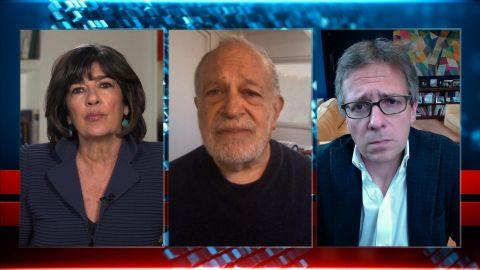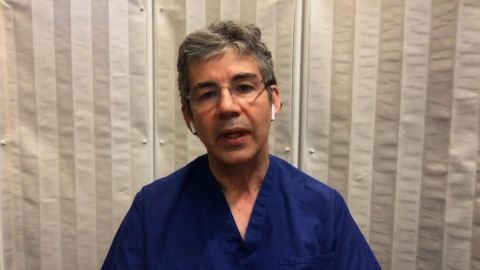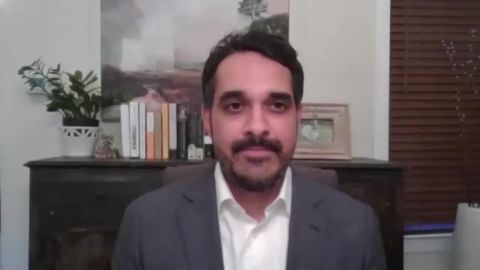Read Transcript EXPAND
CHRISTIANE AMANPOUR: Can I just start by asking you the extraordinary comment and observation that you made, that fighting coronavirus right here in London in a first world, in major metropolitan city, is worse than what you experienced doing surgery in Syria? Tell me how.
DR. DAVID NOTT: Well, I think when you are a war surgeon and working in Syria and you are working in a hospital, you know who your enemy is, really. You know you`re getting information about the frontlines. You know what attacks are happening. You know what patients are going to come in. Here, what I felt was that we had an invisible enemy, really, which could strike any of us at any time. And you didn`t know if you were going to get struck by it or not. And so, everybody, I think, that was working in that – – that is working in the national health service here takes a considerable risk, really, which is, of course, reduced by the amount of PPE that we wear and so on. But even still, you know, the amount of people that have died and the amount, you know, of risk that I think that we take, that`s why I said it was sometimes I felt it was slightly more dangerous working in this environment than it was working in Syria. But of course, the — go on. Sorry.
AMANPOUR: Sorry. No, it`s OK. I want to hear what you have to say. But I was interested to hear, you mentioned PPE, because one of the reasons so many of you doctors and many of the nurses who we have heard from and others on the medical frontlines have actually said that this is their biggest fear and their biggest worry, that there they are willing to go to work, put themselves on the line to do their and perform the Hippocratic oath and do their job and save lives and yet, they feel, that actually, they haven`t got all the PPE they need and they`re having to share and they`re having to, you know, recycle and rewash and reuse the same equipment. Just tell me what you`re seeing and how that strikes you.
NOTT: Well, I have heard that. But where I work in London, and I work in a very major teaching hospital here in Central London, I have not actually found that. I have found that I have the right FFP3 mask. I have the right visors. I do have the goggles if I want them and the hats and the screens and the double gloves and the non-permeable gowns. I don`t — I have never actually come to a problem. And in fact, the way that we run it here, certainly at our hospital, is we have somebody that helps us put the PPE on. Everybody`s like a family team, really. We look after each other so significantly that I actually haven`t found that where I`ve been working.
About This Episode EXPAND
Ian Bremmer and Robert Reich join Christiane Amanpour to analyze tensions between the U.S. and China. War doctor David Nott discusses the traumatic toll that the COVID-19 pandemic will take on the mental health of healthcare workers. Bharat Ramamurti joins Sheelah Kolhatkar to discuss business bailouts and explain the role of the Congressional Oversight Commission.
LEARN MORE


